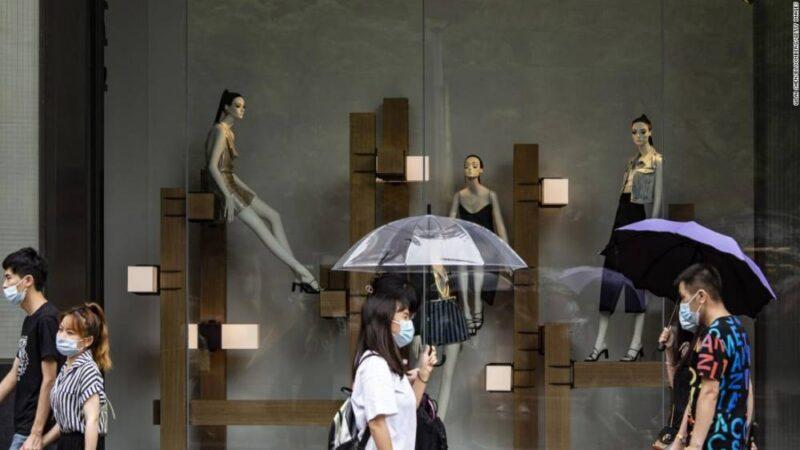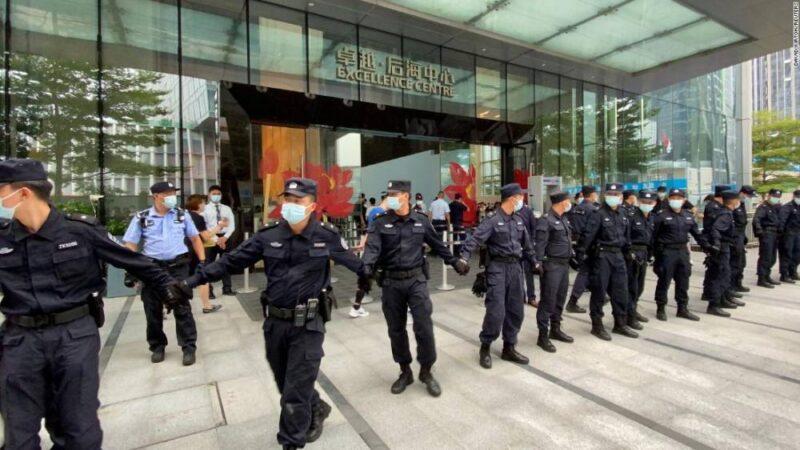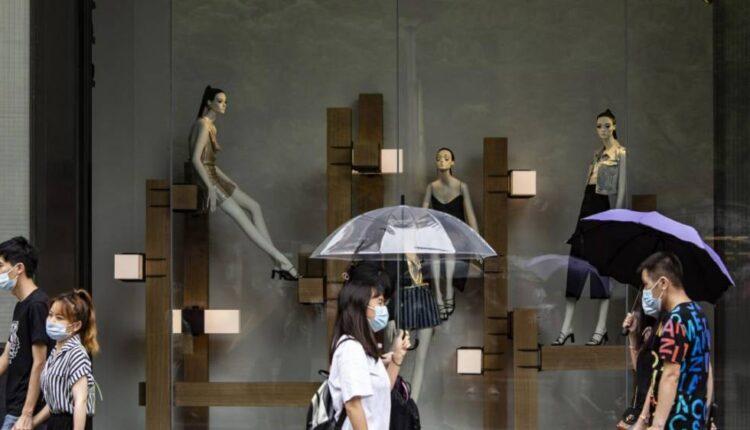Hong Kong (CNN Business)China’s dramatic steps to contain the coronavirus this summer have taken a toll on consumer confidence in the country and are fueling concerns about the strength of the world’s second largest economy.
Retail sales struggled in August, increasing just 2.5% compared to a year earlier, according to government statistics released Wednesday. That was much weaker than expected and a dramatic slowdown from the 8.5% uptick recorded in July. Chinese authorities attributed the slower growth to Covid-19 outbreaks and flooding, which stopped people from traveling and caused them to hold off on “summer holiday spending,” according to Fu Linghui, a spokesman for the National Bureau of Statistics, who spoke Wednesday at a press conference in Beijing.

The Delta variant is just one of the clouds hanging over China's economyIndustrial production rose 5.3% in August from a year earlier, also slower than July and the weakest growth generated by China’s factories in a year.
Investment in urban areas, meanwhile, increased 8.9% for the January-to-August period, down from 10.3% through the first seven months of the year.Read MoreThe data released Wednesday is the most stark showing yet of how much the actions that the government took to slow an outbreak of the Delta variant this summer have hit the economy. To stop new infections China has pursued an aggressive zero-Covid strategy, locking down cities, canceling flights and suspending some port operations.The approach worked to bring the virus back under control, albeit at the expense of economic activity.But the Chinese economy has other concerns to contend with, too, including a crunch facing the property sector. New housing projects, as measured by floor space, fell 3.2% during the first eight months of the year.”The headwinds facing the property sector appear to be intensifying,” wrote Julian Evans-Pritchard, senior China economist for Capital Economics, in a research report on Wednesday. He added that the government’s restrictions on borrowing among property developers are putting strain on the sector.

Chinese property giant Evergrande warns again that it could default on its enormous debtsRecently, Chinese property giant Evergrande’s cash crisis has significantly worsened, and the company has warned that it could default on its huge debts as it struggles to cut costs or find buyers for some of its assets.The company, one of China’s largest real estate developers, has already triggered market turmoil in the country as its bonds and stocks have plunged. Investors worry that a default could have ripple effects for China’s banking system and the wider economy, as well as spark social unrest. Already, investors and the company’s own employees have reportedly been protesting at Evergrande’s headquarters in Shenzhen, as well as in Sichuan, Jilin and Henan provinces.The coronavirus, meanwhile, may continue to vex the economy. A new outbreak in southeastern Fujian province “is posing a downside risk to our forecast of a pickup in growth” in the fourth quarter, after a weak third quarter, wrote Louis Kuijs, head of Asia economics for Oxford Economics, in a Wednesday research report.
He added that he expects “the tight stance on financing to property developers to remain and the regulatory tightening on internet companies to weigh on sentiment and growth,” referring to the ongoing government crackdown on big tech firms.But Kuijs added that the Chinese government will likely be keen to avoid a sharp slowdown. He expected authorities to support growth in the coming months by cutting interest rates and allowing local governments to issue more bonds to fund infrastructure projects.
Source: edition.cnn.com

